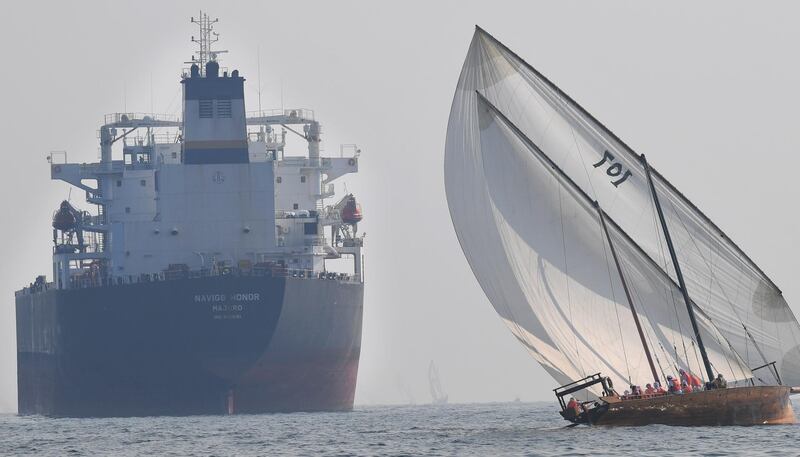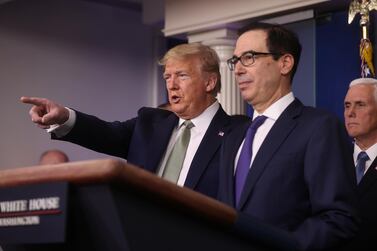S&P Ratings slashed its forecast for oil prices by $10 a barrel, citing severe supply-demand imbalance due to the coronavirus outbreak.
The ratings agency lowered its 2020 assumptions for crude commodity benchmarks Brent and West Texas Intermediate to $30 and $25 a barrel, respectively, from previous $40 and $35 a barrel estimates. Price forecasts for 2021 and 2022 remain unchanged, S&P said.
Brent, the most widely traded crude benchmark, closed at $26.98 a barrel on Friday, while WTI, which largely tracks North American crude grades settled at $22.63. Both benchmarks have lost nearly 60 per cent in value from January when they traded above $60 a barrel.
With global air travel coming to a halt following various border control measures enforced by governments to contain the pandemic, demand for jet fuel, which typically accounts for 8 to 10 per cent of global oil supply has had "an immediate demand impact", the agency said in its report.
With some countries under lockdown or movement restrictions and people encouraged to work from home as part of quarantine measures, oil demand decline for the month of April and May could be as much as 14 million bpd.
"Adding this to the additional supply of 2m to 4m bpd from Opec+ implies a swing to an imbalanced position equal to 15 per cent or more of global production. This comes after a second relatively mild winter, with lower-than-average heating fuel demand, the report added.
Saudi Arabia is expected to bring an additional 2.6m bpd of supply to the markets in April, raising its overall supply for the month to 12.3m bpd. The UAE is set to increase output by a million bpd to 4m bpd next month.
The rise in production from the Opec members follows the failure of the Opec+ alliance to negotiate additional cuts to offset the impact on demand from the spread of the coronavirus. Talks collapsed as Russia, the biggest producer in the alliance, remained sceptical about the impact of the pandemic on oil demand. Saudi Arabia had asked for a 1.5m bpd of more cuts on top of the 1.7m bpd restrictions implemented by the Opec+ pact. The recommendation was excessive for Moscow, which walked away from the talks.
"Russia and Saudi Arabia's actions are reminiscent of the November 2014 Opec meeting where Opec sparked a price war, deciding to maintain production despite oversupply conditions due to increasing oil production from the US," S&P said.
The agency does not expect US production to decline immediately due to hedges and previously drilled wells. Output from the US shale basins is instead expected to taper off towards the year-end as independent producers would find it challenging to maintain spending levels.
Norbert Rucker, head of economics and next generation research at Swiss bank Julius Baer expects the "washout" of US shale to be less "drastic" than in 2015.
"The shale business is grinding to a halt and US oil output is shifting into decline. The industry will survive but some companies are set to disappear. 'Big oil' has built a presence that is too competitive," he said on Sunday.
US producers who are anxious to avoid an industry collapse made some overtures to Opec in order to participate in trimming output and keep prices in check. However, the proposal from an energy market regulator from Texas to cut production by 10 per cent, if Opec also participated, was dismissed by US energy industry associations.
"To be sure, oil output in the US will start to fall as producers slash capex needed to maintain production steady. But widespread co-operation on cutting production is unlikely—and could be in breach of anti-trust regulations," said Edward Bell, commodity analyst at Emirates NBD.








